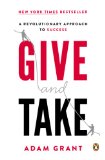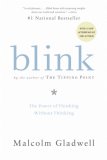Summary | Excerpt | Reading Guide | Reviews | Beyond the book | Read-Alikes | Genres & Themes | Author Bio

Happiness for People Who Can't Stand Positive Thinking
by Oliver BurkemanA witty, fascinating, and counterintuitive read that turns decades of self-help advice on its head and forces us to rethink completely our attitudes toward failure, uncertainty, and death.
The Antidote is a series of journeys among people who share a single, surprising way of thinking about life. What they have in common is a hunch about human psychology: that it's our constant effort to eliminate the negative that causes us to feel so anxious, insecure, and unhappy. And that there is an alternative "negative path" to happiness and success that involves embracing the things we spend our lives trying to avoid. It is a subversive, galvanizing message, which turns out to have a long and distinguished philosophical lineage ranging from ancient Roman Stoic philosophers to Buddhists.
Oliver Burkeman talks to life coaches paid to make their clients' lives a living hell, and to maverick security experts such as Bruce Schneier, who contends that the changes we've made to airport and aircraft security since the 9/11 attacks have actually made us less safe. And then there are the "backwards" business gurus, who suggest not having any goals at all and not planning for a company's future.
Burkeman's new book is a witty, fascinating, and counterintuitive read that turns decades of self-help advice on its head and forces us to rethink completely our attitudes toward failure, uncertainty, and death.
The Antidote is aptly titled: the book is both a cure for what ails most guides to happiness and an anti-self-help title of sorts. Author Oliver Burkeman offers compelling introductions to seven philosophies that capitalize on the reality that capitalize on the reality of the negative – versus the popular and permeating positive – to promote happiness...continued
Full Review
(514 words)
This review is available to non-members for a limited time. For full access,
become a member today.
(Reviewed by Stacey Brownlie).
The Antidote introduces readers to numerous intriguing thinkers, past and present. Here is a short sampling with brief introductions:
 Daniel Wegner – professor of psychology at Harvard and director of the Mental Control Laboratory at the University. Wegner's studies concentrate on what he calls "the precisely counterintuitive error," our propensity to do exactly the thing we're trying to avoid. A New York Times opinion piece by Wegner explores the Web's effect on human memory. He is also the author of the book, The Illusion of Conscious Will.
Daniel Wegner – professor of psychology at Harvard and director of the Mental Control Laboratory at the University. Wegner's studies concentrate on what he calls "the precisely counterintuitive error," our propensity to do exactly the thing we're trying to avoid. A New York Times opinion piece by Wegner explores the Web's effect on human memory. He is also the author of the book, The Illusion of Conscious Will.
 Albert Ellis – a non-traditional psychotherapist who began promoting tenets of Stoicism in the 1950s. He founded the Albert Ellis Institute and was the author of over 50 books. One of ...
Albert Ellis – a non-traditional psychotherapist who began promoting tenets of Stoicism in the 1950s. He founded the Albert Ellis Institute and was the author of over 50 books. One of ...
This "beyond the book" feature is available to non-members for a limited time. Join today for full access.

If you liked The Antidote, try these:

by Adam M. Grant
Published 2014
Give and Take highlights what effective networking, collaboration, influence, negotiation, and leadership skills have in common.

by Malcolm Gladwell
Published 2007
Drawing on cutting-edge neuroscience and psychology and displaying all of the brilliance that made The Tipping Point a classic, Blink changes the way you'll understand every decision you make. Never again will you think about thinking the same way.
Every good journalist has a novel in him - which is an excellent place for it.
Click Here to find out who said this, as well as discovering other famous literary quotes!